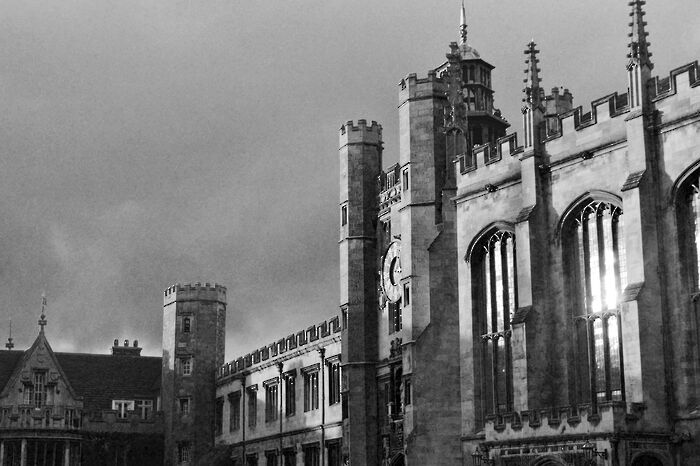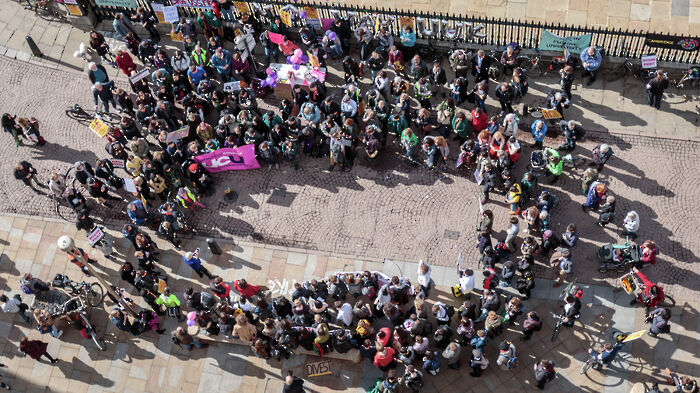Academics pledge to withhold labour from Trinity if it exits UK pensions scheme, in wake of Varsity revelations
Over 160 signatories of an open letter have said they will “refuse to supervise Trinity students” or engage in work supporting Trinity, if the college leaves the scheme

Following revelations in Varsity that Trinity’s executive decision-making body has voted to leave the national pensions scheme for university staff, over 150 Cambridge academics have condemned the move, and have pledged to withhold their labour from the College if the decision goes ahead.
Should Trinity proceed to withdraw from USS, the signatories of an open letter have pledged to “refuse to supervise Trinity students” and will no longer engage in work that “support[s] Trinity’s teaching and research activities.”
The letter, addressed to Trinity College Council and fellows of the college, says that Trinity’s move to leave the pension scheme seems “motivated by a refusal to accept the basic principle of a mutual scheme across higher educational institutions” and that given such an attitude the college “cannot expect the continued support of other institutions and staff for its own activities”.
In response to the open letter, a spokesperson from Trinity told Varsity that “Trinity College is reviewing pension arrangements for its academics. Consultation is underway and any decisions will be taken after completion of this process.”
Jenny Marchant, Vice-President of Cambridge UCU, told Varsity: “Many members of the University of Cambridge have been troubled to see that Trinity College are planning to buy themselves out of the USS pension scheme. In under 36 hours nearly 200 people have made their feelings on this issue known by signing this open letter”.
“Trinity College must understand that they are part of a collegiate system that relies on the support of other members of staff, and that opting out of USS and the potential damage this could cause to the scheme has consequences broader than the nominal financial risk in view”.
As documents leaked to Varsity this week revealed, Trinity College is expected to exit the scheme and set up a private pensions scheme for its staff, a move estimated to cost £30m and which could cause the financial rating of the entire national scheme to be downgraded, if a second sizeable institution were to follow.
A spokesperson for the College declined to comment earlier this week on any remaining steps required before the college exits the scheme.
At the time of publication, the open letter had 161 signatories from staff across departments and colleges of the University of Cambridge, including Dr Samuel James, the current Cambridge branch president of the University and Colleges Union (UCU) and Jenny Marchant, Vice President of Cambridge UCU.
The deficit of the Universities Superannuation Scheme, a nation-wide scheme for the majority of higher education employees, was at the centre of proposed pensions changes in 2017 — which sparked a wave of strikes across the country last year.
The objective of strike action in 2018 was to prevent a proposed shift from a pensions scheme which guaranteed employees a set income upon retirement to a proposal in which the value of employees’ pensions would depend on returns of underlying investments. Employees feared the change would leave staff up as much as £200,000 worse off. A valuation of the pensions scheme is currently ongoing: in wake of Trinity Council’s decision, consultants for the scheme have recommended changing rules around exiting the scheme, in order to prevent other employers from exiting.
The open letter underlines that the actual risk exposure for employers such as Trinity College “is vanishingly small”, referring to the potential scenario of a funding shortfall. In comparison, the letter states, “the immediate cost of buying out of the Scheme [is] very high.”
Trinity College Council aims to realise the withdrawal from the nation-wide pensions fund by September this year.
 News / Cambridge student numbers fall amid nationwide decline14 April 2025
News / Cambridge student numbers fall amid nationwide decline14 April 2025 Lifestyle / First year, take two: returning after intermission14 April 2025
Lifestyle / First year, take two: returning after intermission14 April 2025 News / Greenwich House occupiers miss deadline to respond to University legal action15 April 2025
News / Greenwich House occupiers miss deadline to respond to University legal action15 April 2025 Comment / The Cambridge workload prioritises quantity over quality 16 April 2025
Comment / The Cambridge workload prioritises quantity over quality 16 April 2025 Sport / Cambridge celebrate clean sweep at Boat Race 202514 April 2025
Sport / Cambridge celebrate clean sweep at Boat Race 202514 April 2025






